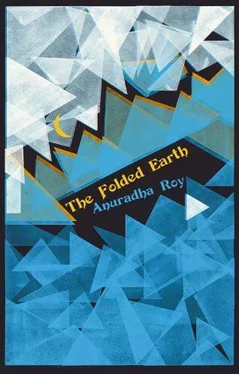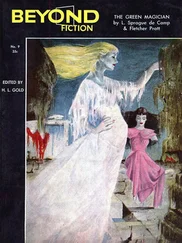Mr Chauhan lowered his voice to a hiss. “What sort of impression does the tourist get of Ranikhet when he arrives expecting a neat and clean army town and sees all this garbage? In foreign countries I have heard people have to pick up even their dog’s … waste from roads.”
“Mr Chauhan, I am trying to tell you something,” I said. “A genuine problem.”
Maybe I was shouting, because he said in a soft, dangerous voice, “I heard you Madam, please do not raise your voice. People throw rubbish everywhere, it is a big problem in Ranikhet, not only Ranikhet, all of India. I have seen it in Lucknow, Bareilly, Dehra Dun — wherever I have been posted. Foreigners rightly remark that India is a country ruined by us Indians. We requisition dustbins, but nobody uses them. As for the old graves, and angels’ wings, even stone has a lifespan, and these are two hundred years old. And your late husband’s grave? — I will send someone to check. We will look into it. We have correct procedures for everything.”
I was about to retort with something acid when a pleased expression spread over his face. The Army band had just struck up. The first notes of brass music were rolling over the hills. Sounds of instruments being tuned reached our ears. A baritone voice joined them, with a line from a sentimental Hindi film song. “ Ek akela is shahar mein, raat mein aur dopahar mein ”, the voice warbled mournfully. “Alone in this city, all alone, at night and through the afternoon.”
Mr Chauhan stood with his eyes closed in pleasure until the song was interrupted by the General’s barks. The General rounded the bend, thwacking Bozo with his Naga spear in an effort to stop the dog from tugging at his leash to get at Bijli, who was growling back from a parapet across the road. “What is the reason, Bozo?” the General demanded as he pitted his wispy strength against his dog’s muscle. “I fail to understand. What is the reason ?” He glimpsed the bird-watching couple and called out to them: “Hello there! Spotted anything yet?”
“Before the regimental reunion,” Mr Chauhan said, walking towards the General with a wide smile, “I will make it all new. This town will be the star of the hills, that is my promise.”
* * *
I gave up on Mr Chauhan and headed for the Light House. I was earlier than usual and Diwan Sahib, expecting no visitors at that time, was sitting in his garden practising birdcalls. Once a year, he went to St Hilda’s and put on a performance, educating the children about forest sounds and signs. He had done so for the past sixteen years and it was now part of the school’s Annual Day celebrations. The assembly hall would ring with his leopard and barking deer and owl calls while the children sat in rows on the floor, shrieking in delight and terror. He had got the idea from Corbett, who used to put on similar performances at schools in Nainital. I was not able to make sense of it in someone as irritable and solitary as he was, but he took it seriously and began practising months ahead, so I stood still, waiting for him to finish. After a long while he noticed me, and stopped a chital’s call midway with a frown.
I handed him the receipt for his electricity bill, and his newspaper.
He looked at the receipt and said, “Today? You were supposed to pay it two weeks ago. It’s long overdue, there must be a fine.”
My knees and fingernails were sore. The cloud of my headache hovered as if it would return at the least inkling of distress. Diwan Sahib’s tone made my head throb. “Not two weeks ago, one,” I said, and then, for no reason that I could think of, I lied. “I did pay it then, just forgot to give you the receipt.” Diwan Sahib raised a sceptical eyebrow.
“It’s paid, isn’t it? That’s all that matters.”
I turned away to go, without waiting for tea or our newspaper session. He said, “What is it? Why do you look as if you walked into a tree?”
Diwan Sahib could be perverse. When you least thought you would find sympathy he could be kindness personified. Yet when you felt battered, afraid, uncertain, he might turn it all into a joke. It was with some reluctance that I told him what had happened at the graveyard. A mocking smile began curling his lips before I had finished.
He said, “A few drunks go berserk and you report it as if the end of the world has come. They must have been college boys, looking for a lonely place to go wild in … and the bazaar booze shop is down the road from that graveyard.”
“It is not down the road from the booze shop, the bazaar is two kilometres away.”
“What is two kilometres these days? Boys have motorbikes.”
“It’s not a few drunks,” I said. “Don’t you read the papers? Haven’t you noticed how missionaries are being threatened and beaten up? I told you how those election workers threatened me and Miss Wilson. The poor woman was terrified.”
“The poor woman! You’re constantly complaining, ‘Agnes-this, Agnes-that, Agnes needs her vocal cords changed, no wonder Jesus didn’t want Agnes Wilson for His bride’.” Diwan Sahib spoke in high-voiced imitation of my own. “So why is your heart bleeding for her now?”
“That’s different. This is serious, I’m sure this is another way of giving the Church a message.” I was stumbling over my words in my anger and tried to slow down. “I’ve noticed things going wrong there over the last few months. Most of the old gravestones have chunks missing. Some of the writing on them is wiped off. That beautiful angel on little Charlie Darling’s grave is headless.”
“Why have graves, is what I say. The man’s dead and you hold onto his bones. It’s all molecules.” Diwan Sahib looked sullen and obstinate. “Throw the ashes into a fast-flowing river. Or scatter them in the air. Much more poetic.”
“That’s neither here nor there,” I said in as sharp a voice as I dared. “That graveyard is sacred to some people.”
Diwan Sahib refused to take me seriously. He poured himself another drink, topped it carefully with an equal amount of water, and flung himself back into his chair. “Chandan and Puran and Joshi and Tiwari,” he said. “I suppose they’re all hiding country bombs in their haystacks and shops and cowsheds to go and attack your precious school and church and jam factory, one of these days. And your chaiwallah at the temple, who spots a leopard for every cup of tea he sells? He may be manufacturing gunpowder boiled in leopard blood as we speak. Look for another job, Maya, while there is time. And go back to your maiden name.”
By the end of April the peaks were hidden behind a dust haze that rose from the plains, and on the rare early mornings when they became visible we could see bald grey stone on ridges where snow should have been. Down in the plains, we heard, the hot winds had begun to blow. Here it was cool in the evening, but the grass was yellow, the earth dusty far too early in the summer, and sun was so intense that it tore through layers of clothing like fire. Water ran dry in the pipes, garden plants wilted. If the sky showed signs of clouding up, Ama cautioned Charu not to bring in the washed clothes from the line or the red chillies that were drying in the sun. Her notion of rain was that it was a sentient creature that enjoyed wetting things put out to dry. It would lose interest and saunter off if the clothes and the chillies were moved to a sheltered place.
Charu and Puran began to go further and further afield with the cows, having exhausted all the grass closer to home. Despite the heat, Puran neither bathed nor changed out of his sweater and cap. When he passed, the air around him hung with a sour unbreathable smell that was a putrid compound of sweat, hay, milk, and cattle. These days I moved away if I saw him approach.
Читать дальше












